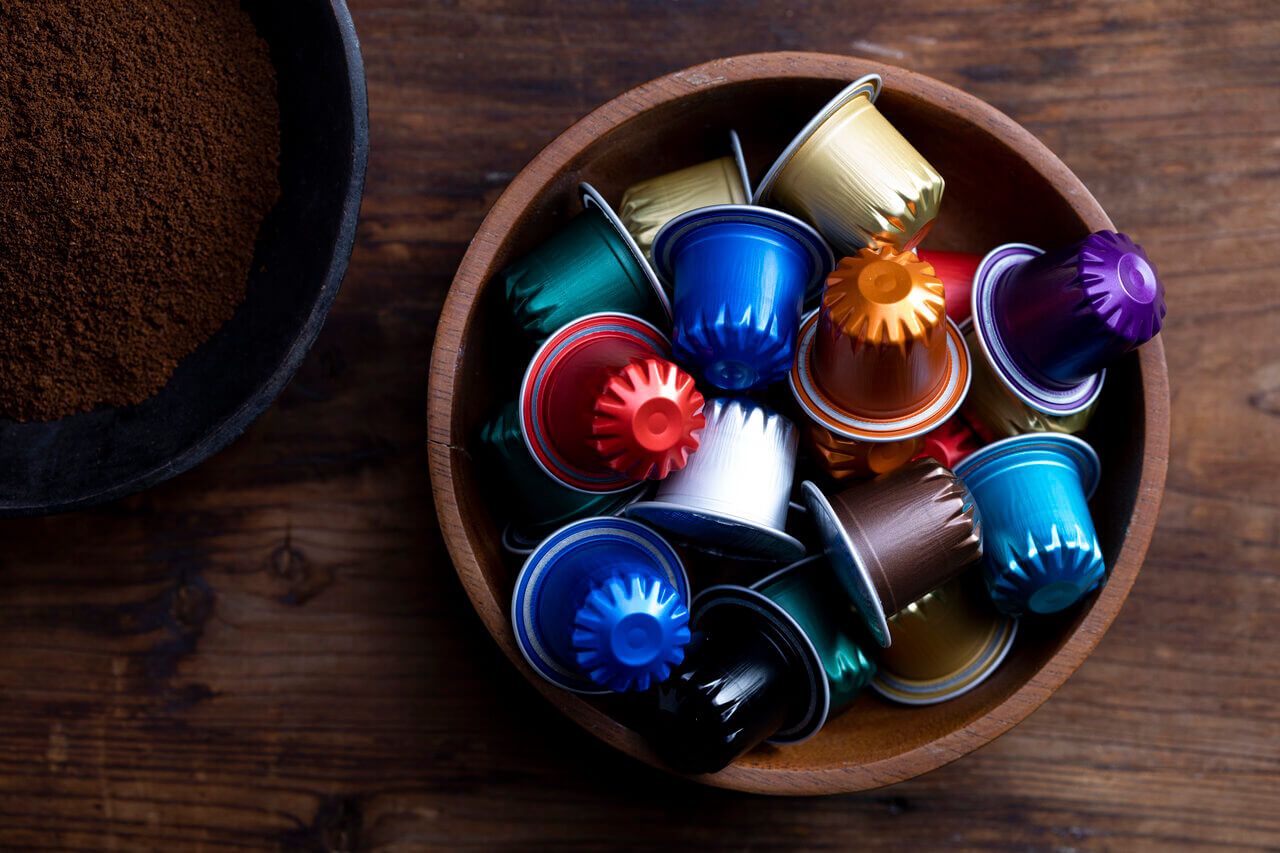The Growth Forecast for Compatible Aluminum Capsules by 2025
With the rise in working from home and an increased desire for freshly brewed coffee, it’s no surprise that compatible aluminum coffee capsules are more popular than ever. But will this market continue to grow, or will there be a decline in consumer interest in favor of other alternatives?
The global coffee capsule market is continuing to boom and is expected to be worth over $5 billion by 2025. However, environmental concern is hindering the growth of both plastic and aluminum coffee capsules, leaving more recyclable and sustainable coffee capsules as potential market leaders in years to come.
So how is this market currently established, and how do we expect it to fare in the next few years? Let’s take a closer look at the growth forecast for compatible aluminum capsules by 2025.
The Current Most Popular Coffee Capsules
In 2022, most coffee capsules on the market are made of plastic. They are substantially cheaper for companies to manufacture, and these financial savings can be passed on to consumers too.
While consumers want fresh coffee, a smaller price tag is of course desirable as is convenience, which is why plastic has dominated the coffee capsule market with its initial popularity.
Aluminum coffee capsules have been a more recent success in the coffee capsule market, proving to be much easier to recycle than plastic. With the rise in high-end coffee shops such as Starbucks and Café Nero, consumers not only want freshly brewed coffee, but they want that premium feel, of which aluminum far surpasses its plastic rival.
Consumer Trends That Are Changing the Coffee Capsule Market
The coffee capsule market is inevitably changing, and aluminum seemed like it was taking on the new market leader role due to its improved recyclability over plastic. Consumer trends showed that people were more concerned about the environment than ever before, and began buying into the idea that they could recycle their coffee pods, particularly with trends of sustainability in young people being higher than ever.
With the COVID-19 pandemic came more remote/home working – and which industry saw an increase during this period? That’s right, the coffee machine market. With so many more people now making their coffee at home, aluminum coffee capsules boomed, particularly more sustainable ones with the younger markets.
Recyclability and Sustainability of Compatible Aluminum Capsules
However, aluminum is fast becoming known as the ‘non-recyclable’ recyclable coffee capsule, as while it can be recycled it is down to the consumer to ensure this is done correctly.
For example, if you own a beloved Nespresso machine, you’ll likely be familiar with the green bag in which to dispose of your capsules. In the UK all aluminum coffee capsules are sent to a single recycling plant, which Nestle partnered with specifically for this reason. However, it is down to the consumer to deliver their recyclable pods to these plants so that they can be recycled correctly – it has been reported that only 30% of Nespresso customers do this.
It’s clear that growing environmental concerns and awareness are hindering the growth of the aluminum coffee capsule market, showing companies need to make changes if they intend to survive. This surely paves the way for a potential new market leader in the private label coffee capsule market…
How Are Companies Changing
As the market changes, companies are already adapting their products and logistics to ensure the growth of their market is set to continue. With consumers caring more about the environment in recent years we can’t predict this industry will grow if plastic capsules remain the market leader.
Nestle has recently announced a new service called ‘Podback’, which will be launched in partnership with JDE Peets – this company is invested in facilities used to manufacture aluminum pods at scale. Through their new ‘Podback’ scheme, Nestle will enable consumers to have their recyclable pods collected from their homes on rubbish collection days – providing that councils in specific regions have agreed to collect waste on behalf of such companies.
A similar process to sustainability has been seen in the company Keurig K-Cup, a US market leader in compatible coffee capsules. They were seeing a market decline as consumers were frustrated at having to separate all elements before they could be recycled – however this company has since moved towards a fully recyclable material to improve popularity once again – perhaps Nestle’s downfall will be in sticking with their aluminum coffee capsules rather than switching to different material altogether.
The Growth of Compostable Coffee Capsules
While Nestle and other large companies are making efforts to make their aluminum coffee capsules more easily recyclable, there’s no denying the increase in popularity for 100% compostable coffee capsules. These pods are made of materials such as lignin, a by-product of the wood and paper industry that breaks down easily and can bio-degrade in just a few weeks/months.
While many materials are recyclable, ultimately consumers are showing that they’re moving away from wanting products to be just recyclable, and wanting them to be biodegradable so they break down completely.
Bioplastics are another material some companies are using to create compostable coffee capsules, as they take only three to six months to decompose, unlike plastic which can take hundreds of years.
Conclusion
To summarize, while the aluminum coffee capsule market isn’t going anywhere immediately it may not be solid for long. Market experts tell us that they believe the market will remain fairly strong for around 3 – 5 years.
Ultimately companies will follow the latest consumer trends, particularly if sustainable packaging gives them environmental savings which they can then pass on to their customers.
While it’s likely that compatible aluminum capsules will continue to experience growth in the short term, we don’t anticipate this growth will be sustainable. Perhaps we all ought to be looking into whether our coffee machines are compatible with compostable coffee capsules in the near future…
Sources
https://www.researchandmarkets.com/reports/5446089/coffee-capsule-global-market-report-2021-covid
https://bartalks.net/capsule-coffee-trends-and-market-analysis/?amp
https://www.thebusinessresearchcompany.com/report/coffee-capsule-global-market-report
https://www.mordorintelligence.com/industry-reports/coffee-pods-and-capsules-market
https://www.savemoneycutcarbon.com/learn-save/how-long-does-it-take-for-plastic-to-biodegrade/

